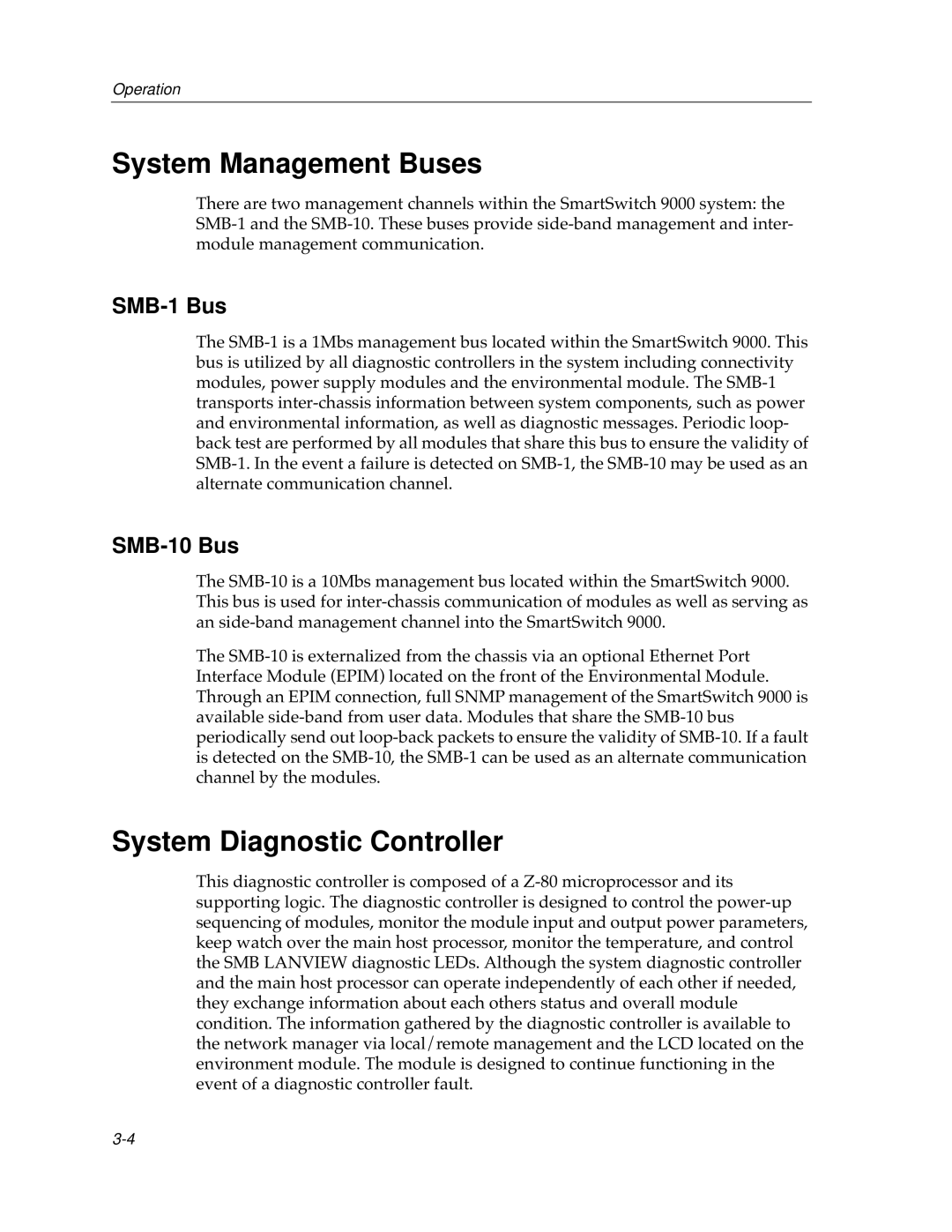12 specifications
Cabletron Systems 12, widely regarded for its impact on networking technology in the late '80s and early '90s, has become a pivotal part of the history of data communications. This product marked a significant leap forward in the area of local area networking (LAN), blending reliability with advanced capabilities tailored for varied business needs.One of the standout features of Cabletron Systems 12 is its ability to facilitate scalable networking solutions. It was designed with modularity in mind, allowing businesses to expand their network infrastructure as their needs evolved. This characteristic made it particularly appealing to organizations experiencing rapid growth, as it provided a cost-effective way to upgrade and add components without a complete system overhaul.
The architecture of Cabletron Systems 12 was based on a multi-layer switching technology. This approach enhanced the speed and efficiency of data transmission across the network. By employing a combination of hardware and software solutions, it minimized bottlenecks and ensured superior performance during high-traffic periods. Enhanced throughput made it suitable for a range of applications, from small businesses to enterprise-level networks.
Another significant feature was its support for a diverse set of network protocols, including Ethernet and Token Ring. This flexibility allowed organizations to integrate various networking technologies into a single cohesive system, thereby protecting their investment in existing infrastructure while still enabling new technology adoption.
The design of Cabletron Systems 12 also prioritized management and monitoring capabilities. With user-friendly interfaces and tools, network administrators could easily configure and manage their networks, enhancing overall operational efficiency. Real-time diagnostics and reporting features helped in troubleshooting and maintaining optimum network performance.
In addition to its performance-oriented features, Cabletron Systems 12 was also noted for its robust security protocols, which were crucial in an era where cyber threats were beginning to rise. Comprehensive security measures ensured that data integrity and privacy were maintained, providing peace of mind for organizations relying on digital communications.
Overall, Cabletron Systems 12 encapsulated the technological innovations of its time, offering a blend of speed, scalability, and security. Its ability to adapt to the changing landscape of networking set a precedent for future developments in the field, making it a noteworthy milestone in the evolution of communication technology.
